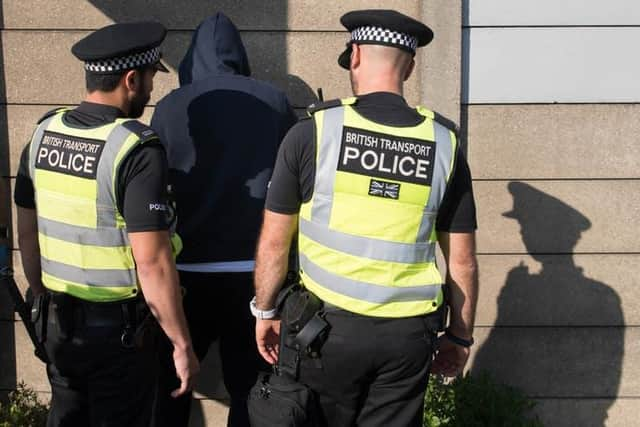Thousands of stop and searches in Nottinghamshire – with black people significantly more likely to be targeted
and live on Freeview channel 276
Home Office data shows officers in Nottinghamshire used stop and search powers 5,089 times in the year to March – down from 5,414 the year before.
It was one of just a handful of forces to see a drop in the number of stop and searches conducted.
Advertisement
Hide AdAdvertisement
Hide AdThe proportion of searches which led to an arrest rose from 11 per cent to 12 per cent over this period.


Chief Superintendent Mat Healey, of Nottinghamshire Police, said: “The figures show we arrested more people for carrying drugs, weapons or stolen goods than we did the previous year which is positive.
“This has been achieved despite stopping fewer people, meaning we are stopping and searching the right people more often.
“The use of stop and search powers has been critical in delivering the reductions we have seen in knife crime, and other crime types, in Nottinghamshire and it is not unusual to find possession of knives and other weapons is synonymous with possession of, or dealing in, controlled drugs.”
Advertisement
Hide AdAdvertisement
Hide AdAcross England and Wales, the number of stop and searches rose from 577,000 in 2019-20 to 704,000 in 2020-21.
This means almost 2,000 people were stopped per day on average last year, with figures peaking in mid-May 2020, when there were almost 3,000 searches each day.
But the national arrest rate fell from 13 per cent to 11 per cent – the lowest level since 2012-13.
Racial disparities
The figures also show that across England and Wales, black people were significantly more likely to be searched than white people, though slightly less so than the year before.
Advertisement
Hide AdAdvertisement
Hide AdMr Kadiri said: “What is exceptional is how racial disparities persisted even during a global pandemic, proving the police never stopped working tirelessly to overpolice people of colour.
“We simply would not accept this of any other emergency service profession. The police must do better.”
In Nottinghamshire, black people were 3.9 times more likely to be stopped, compared with 4.8 in 2019-20.
Mr Healey said: “Disproportionality is a factor in Nottinghamshire and it is of little comfort that we perform better when compared against other police forces. There is more to do.
Advertisement
Hide AdAdvertisement
Hide Ad“Reasons for disproportionality are complex, but in Nottinghamshire we are committed to working with communities and using the powers available to us fairly, objectively and professionally.
“In the last 12 months, all front-line officers have received personal issue, body-worn video units which must be recording throughout any stop-search encounter.
“We do not underestimate the impact stop-and-search encounters can have on people in our communities.
“We invite and encourage the public and community groups to scrutinise the way in which we use stop and search and to provide challenge to help improve the way the power is used. Anyone interested in becoming involved in this work should contact the force via 101.”
Advertisement
Hide AdAdvertisement
Hide AdThe Home Office said police used extra officers and resources to tackle drug crime during the coronavirus lockdown, and also removed almost 16,000 dangerous weapons from our streets.
A spokesman said: “No-one should be targeted for stop and search because of their race and there are extensive safeguards in place to prevent this.”
